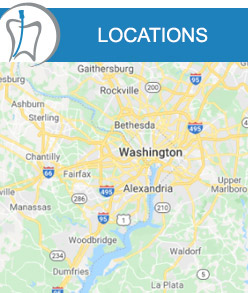Why Do I Need to See a Dental Specialist?
Keep your dental health in check and talk to your dentist today about seeing a specialist for serious dental problems. Treatments are available. Contact our team of dental professionals today at Ideal Endodontics or visit us online to book an appointment. We have convenient locations to serve you in Washington DC and Woodbridge VA.


Table of Content:
What does a dental specialist do?
When would a dentist refer a patient to a specialist?
What are some serious symptoms that require seeing a dental specialist?
Does the dental specialist offer aftercare appointments?
What does a dental specialist do?
Your dentist may decide that you need to see a specialist for a situation or concern about your teeth at one of your regular checkups. However, there are many different types of dental specialists, so make sure you are asking what you are being referred to a specialist for, as well as what type of specialist. Dental specialists receive the same education and diploma from dental school as general dentists, and then they go on to complete additional training education in the area that they are specializing in.
The types of dental specialist you may be referred to could be one of the following:
- Periodontists are trained and focus on the structures that surround your teeth. They are experts in the gum tissue, bone, and ligaments that are vital in the structure of your mouth by working together to hold your teeth in place. They will typically step in for patients with gum disease or who require dental implants.
- Pediatric dentists focus on the youngest patients, with training on the dental needs of children under the age of 18, as well as people with special needs. Their offerings are much the same as that of a general dentist, but are trained to calm and relax kids.
- Endodontists focus on the blood and nerve supply that is found within our teeth’ roots. The most common procedure performed by endodontists is root canals.
- Prosthodontists specialize in the creation of prosthetic teeth to be used in the application of bridges, dentures, or implant crowns.
There are additional specialties inside the world of dental care, these are just the most commonly known and referred ones.
When would a dentist refer a patient to a specialist?
Dentists and dental specialists attend the same dental school for their initial education and training. Upon graduation, some dentists may choose to go directly into the workforce while others opt to pursue further training. For this reason, dentists can perform many of the same minor procedures as dental specialists, without the patient having to potentially incur a large bill.
However, there are times when a dentist will refer a patient to a specialist for their treatment instead of doing it themselves. This could be due to a complex issue requiring more advanced treatment and care, or that the dentist simply chooses not to perform the procedures. While many dentists can perform the same treatments, they may do one a week, compared to a specialist who is doing the same procedure multiple times a day. Your dentist will choose the option that will be the best choice for your long-term dental care.
What are some serious symptoms that require seeing a dental specialist?
There are many reasons to seek care from a dental specialist. Our teeth and gums are a vital part of our overall health and can greatly impact our ability to eat, drink, and go about our normal lives if they aren’t at their healthiest. The most common complaint that people have when it comes to their teeth is pain. A toothache that hurts, even when you aren’t eating, is a cause for concern as it can indicate tooth decay, an infection, or gum disease, particularly if it is accompanied by swelling.
Experiencing bleeding of the gums when you floss, or bleeding is not common and shouldn’t be ignored as this could be a sign of gingivitis. Injuries sustained to the teeth should be checked out as soon as possible as there could be hidden damage. White spots on the teeth or along the gums can be an early sign of decay or infection. By seeing your dentist right away, both issues can be treated before they progress too far. Extreme cases of tooth sensitivity should also get checked as soon as possible to find the source of the pain. Regular, preventative dental care and checkups with your dentist are important to spot any early conditions or concerns with your teeth as early as possible.
Does the dental specialist offer aftercare appointments?
Each dental specialist will be different, but generally speaking, they will refer you back to your general dentist for aftercare appointments. Your general dentist is much like your primary care physician in that they are your first point of contact for any dental needs and will keep accurate and updated records of any and all treatments received through specialists. This way, your dentist knows what dental work has been done and can provide the necessary aftercare from your procedure. There may be cases when your dental specialist wants to see you for aftercare, but they will let you know which dental professional to see for future questions or concerns. At Ideal Endodontics, we will take care of many of your dental specialty needs and provide you with aftercare instructions related to your personal procedure, including follow-up instructions should you need additional care. We serve patients from Washington DC, Woodbridge VA, Arlington VA, Lorton VA, Manassas VA, Springfield VA, Alexandria VA, and Silver Spring MD.







